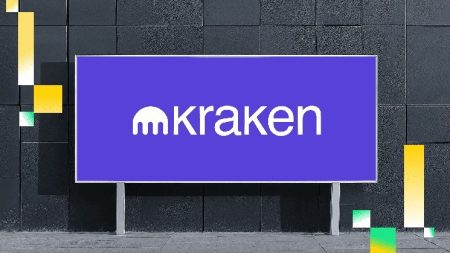Türkiye to Expand Financial Oversight: MASAK Gains New Powers to Combat Money Laundering
In a significant move to strengthen financial security and combat illicit transactions, Türkiye is preparing to substantially enhance the authority of its Financial Crimes Investigation Board (MASAK). According to a recent Bloomberg report, the proposed expansion of powers comes as part of the country’s intensified efforts to address money laundering concerns and align with international financial security standards.
Enhanced Authority to Target Both Traditional and Digital Finance
The forthcoming regulations, which will be presented to the Turkish Grand National Assembly as part of the 11th Judicial Reform Package, represent a watershed moment in Türkiye’s approach to financial oversight. Under the new framework, MASAK will gain unprecedented abilities to freeze both conventional bank accounts and cryptocurrency holdings without prior notice when suspicious activities are detected. Additionally, the agency will have the authority to impose transaction limits in specific scenarios and create blacklists of cryptocurrency addresses linked to illegal operations.
Financial security experts view these developments as a direct response to Türkiye’s need to strengthen its position within the global financial system. Dr. Mehmet Akif Koç, a financial regulation specialist at Istanbul Economic Research, explains the significance: “These new powers reflect a growing recognition that financial crime has evolved beyond traditional banking. By extending MASAK’s reach into cryptocurrency markets, Türkiye is acknowledging the changing landscape of financial transactions and the need for more comprehensive oversight mechanisms.”
Combating “Rental Accounts” and Protecting Financial Integrity
A primary target of the expanded regulations is the growing phenomenon of “rental accounts” – a practice where individuals allow third parties to use their financial accounts for a fee. These arrangements have become increasingly problematic as they facilitate illegal betting operations, money laundering, and various fraudulent schemes that undermine financial system integrity.
“Rental accounts create significant challenges for financial intelligence units worldwide,” notes Ayşe Yılmaz, former compliance officer at a major Turkish financial institution. “These accounts obscure the true identity of transaction originators, making it exceptionally difficult to track the flow of illicit funds. By giving MASAK more direct intervention capabilities, authorities hope to disrupt these arrangements before they can cause substantial harm to the financial ecosystem.”
The regulatory expansion comes at a time when Türkiye has experienced rapid growth in its cryptocurrency market, with many citizens turning to digital assets as alternatives during periods of currency volatility. This growth, while bringing financial innovation, has also created new challenges for regulators tasked with maintaining financial system integrity and protecting consumers from potential scams.
Aligning with International Standards and FATF Guidelines
Türkiye’s regulatory enhancement appears strategically aligned with the principles established by the Financial Action Task Force (FATF), the global money laundering and terrorist financing watchdog. The FATF regularly evaluates countries’ compliance with international financial security standards, and these new measures suggest Türkiye is working to strengthen its position within this framework.
“By adopting regulations that reflect FATF recommendations, Türkiye is sending a clear message about its commitment to international financial security cooperation,” explains Professor Can Demirel of Ankara University’s Department of International Finance. “This alignment is crucial not only for combating domestic financial crimes but also for enhancing the country’s credibility in international markets and financial relations.”
The reform package represents one of the most comprehensive financial regulatory overhauls in recent years, significantly expanding MASAK’s oversight capabilities across both traditional and emerging financial sectors. Financial intelligence experts anticipate that the new framework will substantially improve the agency’s ability to detect and disrupt complex money laundering operations that span multiple financial platforms.
Implications for Cryptocurrency Markets and Financial Innovation
The enhanced regulatory framework signals a more structured approach to cryptocurrency oversight in Türkiye, potentially reshaping the domestic digital asset landscape. While some crypto market participants express concerns about increased regulatory scrutiny, others welcome the clarity these regulations might bring to the emerging sector.
“Clear regulatory frameworks, when properly implemented, can actually support healthy market development by eliminating bad actors and building consumer confidence,” observes Zeynep Aydın, blockchain policy researcher at the Istanbul Fintech Hub. “The key will be finding the right balance between necessary oversight and allowing enough flexibility for innovation to flourish. Too restrictive an approach could push crypto activities underground or offshore, while too lenient an approach fails to address legitimate financial security concerns.”
The proposed regulations come amid growing global recognition that cryptocurrency markets require more robust oversight mechanisms. Several jurisdictions worldwide have recently enhanced their regulatory frameworks for digital assets, reflecting concerns about their potential use in illicit financial activities. Türkiye’s approach appears consistent with this international trend toward greater cryptocurrency regulation.
A New Era of Financial Supervision in Türkiye
As the 11th Judicial Reform Package moves toward parliamentary consideration, financial institutions across Türkiye are preparing for a new era of enhanced supervision. The expanded powers for MASAK represent one of the clearest indications that Türkiye is embracing a more comprehensive and assertive approach to financial regulation, particularly regarding emerging technologies and alternative payment systems.
“These reforms should be understood as part of a broader strategy to modernize Türkiye’s financial security infrastructure,” notes Ibrahim Karaoğlu, director of the Center for Financial Security Studies in Ankara. “As financial technologies evolve, regulatory capabilities must similarly advance. The expansion of MASAK’s authority reflects this recognition and positions Türkiye to better address both current and emerging financial crime threats.”
Financial industry observers anticipate that the implementation of these new regulations will unfold gradually, with MASAK likely focusing initial enforcement efforts on the most egregious cases of financial misconduct. However, the broader message to market participants is clear: Türkiye is strengthening its financial crime fighting capabilities and expects full compliance with both existing and forthcoming regulations.
While the regulatory expansion primarily targets illicit activities, it also serves as a reminder for legitimate financial service providers and users to ensure their operations remain fully compliant with evolving standards. As these changes take effect, financial institutions across Türkiye will need to reassess and potentially enhance their internal compliance mechanisms to align with MASAK’s expanded oversight mandate.
This article is provided for informational purposes only and does not constitute investment advice.














